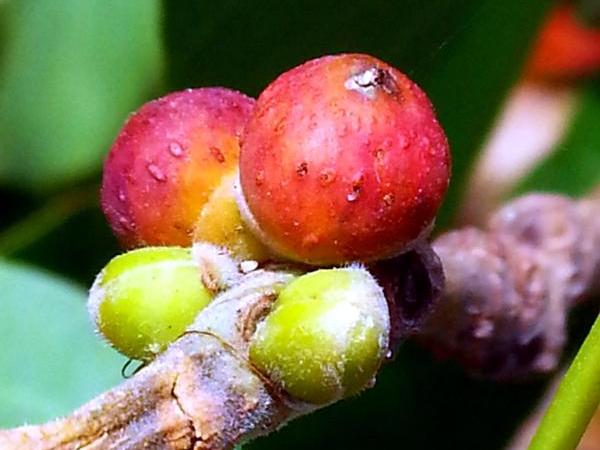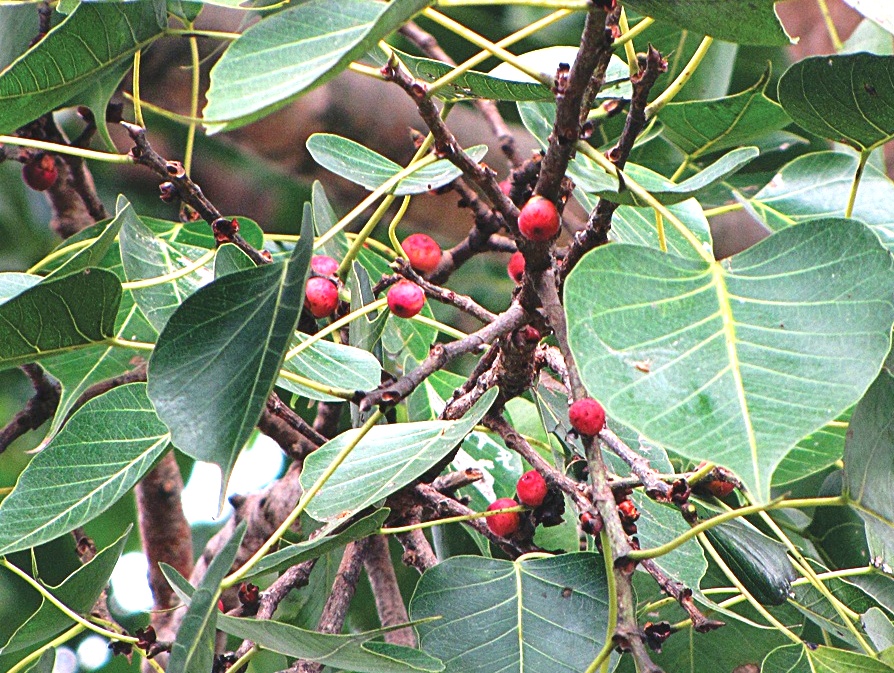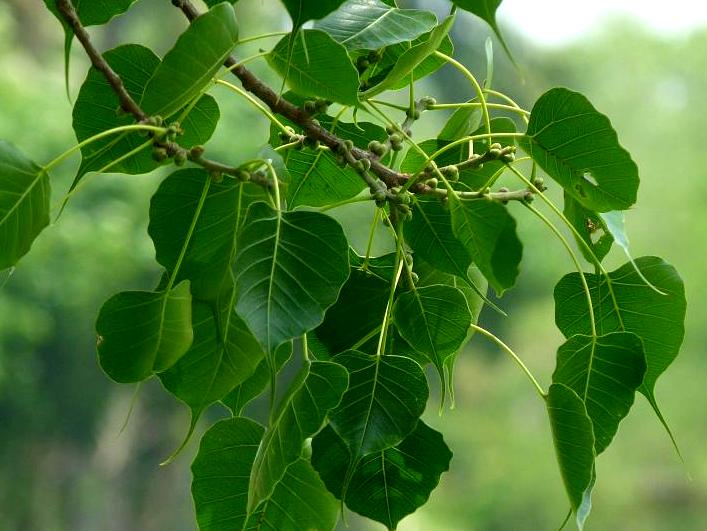Scientific Name : Ficus religiosa L.
Category : Angiosperms
Status : Alive
Ficus religiosa is an evergreen or deciduous tree, 20 m tall and 1.5-2 m dbh, irregularly-shaped, with wide-spreading branches and without aerial roots from the branches. The trunk is regularly shaped, often with low buttresses. Bark is grey with brownish specks, smooth, exfoliating in irregular rounded flakes. Leaves alternate, spirally arranged and broadly ovate, glossy, coriaceous (leathery), dark green leaves, 10-18 by 7.5-10 cm, with unusual tail-like tips, pink when young, stipulate, base-cordate. Petioles is slender and 7.5- 10 cm long. Galls on leaves. Flowers axillary sessile, unisexual. Figs in pairs, rounded, flat-topped green, to 1.5 cm across, axillary, sessile, smooth, ripening to purple with red dots, basal bracts 3 and broad. The specific epithet ‘religiosa’ alludes to the religious significance attached to this tree. The prince Siddhartha is said to have sat and meditated under this tree and there found enlightment from which time he became a Buddha. The tree is therefore sacred to Buddhists and is planted beside temples. BIOLOGY Ficus religiosa flowers in February and fruits in May to June. New leaves appear in April in India. Each species of Ficus has an associated species of agaonid wasp (Hymenoptera: Chalcoidea: Agaonidae) but pollinator wasp for the native F. aurea, Pegoscapus jimenezi (Grandi), has been found intruding into syconia of F. septica and F. religiosa. The pollinator wasp for F. religiosa is Blastophaga quadraticeps. Various birds are potential dispersal agents of F. religiosa seeds including mynah birds (Acridotheres tristis tristis), blue faced doves (Geopelia striata), lace necked doves (Streptopelia chinensis), Japanese white-eye (Zosterops japonicus), Northern cardinals (Cardinalis cardinalis), and house sparrows (Passer domesticus). Other animals such as bats, pigs, rodents, parrots, and monkeys also disperse the fruits. When seeds are dropped on other trees, they germinate. The seedlings rely on the host plant only for anchorage as F. religiosa does not parasitize on other plants. They derive their nutrition from the air and rainfall, until the roots reach the ground.
Specimen Information
-
Common Name(s):
पिंपळ, Peepul Tree, Sacred Fig
-
Synonym(s):
Urostigma affine Miq. Ficus superstitiosa Link. Ficus rhynchophylla Steud. Ficus peepul Griff. Ficus caudata Stokes.
-
Family:
Moraceae
About Me:
-
Created By:
admin
Botany Department (DVP College, Nimgaon Sawa) -
Created On:
19-08-2022
-
Contact:
Phone: 9960072282
Email: [email protected]
Find Location:
Photo Gallery





